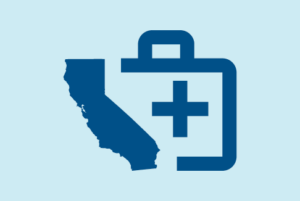Last week, the Coalition to Protect Access to Care — of which CHA is a founding member — announced that it has submitted enough signatures to qualify a key initiative for the November 2024 statewide ballot.
The ballot measure, known as the Protect Access to Healthcare initiative, would make permanent a tax on managed care organizations (MCOs) that enables the state to draw on federal matching funds to advance several needed investments in California’s health care system. If successful, the measure would:
- Increase funding for mental health programs that care for children and Medi-Cal patients
- Expand access to preventive health care for Medi-Cal patients, leading to fewer costly emergency room visits and shorter wait times for all Californians
- Protect existing health care resources to preserve and expand care delivered at hospitals, clinics, and doctors’ offices
- Help California manufacture its own insulin and other prescription drugs for lower costs
- Expand California’s education and training pipeline for nurses, physician assistants, and medical assistants
As a reminder, the tax on MCOs is not a new source of revenue. It has been around for nearly two decades and the state Legislature has had to periodically renew this fee for fixed lengths of time. This initiative would remove the need for legislative action and create a stable, predictable stream of resources for much-needed investments in Medi-Cal, bringing up to $4.4 billion annually to enhance resources for health care.
As much as $1.7 billion of that will be used to bolster hospital care, including:
- $640 million for emergency department services
- $610 million for outpatient services
- $380 million for public hospitals
- $75 million for graduate medical education
Passage of the measure would represent a rare increase in health care resources — especially for patients covered by government payers — at a time when states throughout the nation are facing budget challenges. And it can’t come soon enough, as dozens of California hospitals are teetering on a financial cliff and the communities they serve are at risk of losing critical health care services.
As we look to broaden the coalition of support for this vital endeavor, stay tuned for how your organization can support this work (you can sign up here to support the measure right now), so that California’s most vulnerable can get the care they need, and hospitals can remain health care and economic pillars throughout the state.
